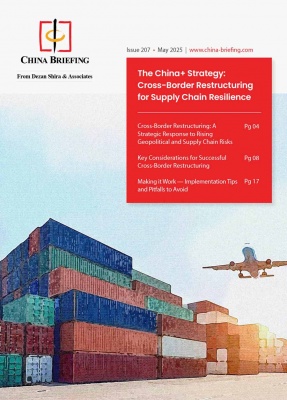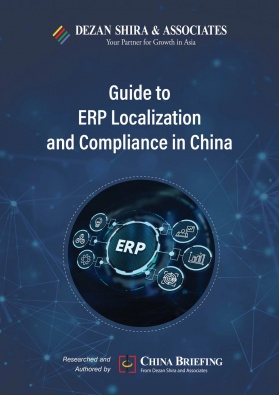China’s Regulatory Adjustments to Unlock Service Sector Potential in Six Cities
China has approved regulatory adjustments across major cities to further open up the service sector and attract foreign investment, focusing on areas like medical institutions, elder care facilities, tourism, entertainment, and telecommunications.
In a significant move to enhance China’s service sector, the State Council has approved temporary adjustments to administrative regulations and departmental rules across six major cities:
- Shenyang;
- Nanjing;
- Hangzhou;
- Wuhan;
- Guangzhou; and
- Chengdu.
Announced on July 11, 2024, these adjustments are part of a broader strategy aimed at boosting the competitiveness of the service industry and attracting both domestic and foreign investments.
Each of these pilot cities, pivotal in China’s economic landscape, will temporarily modify regulations concerning medical institutions, elder care institutions, travel agencies, entertainment venues, commercial performances, and foreign investment access.
This initiative seeks to foster a more dynamic business environment, stimulating growth in the service sector. It underscores China’s ongoing commitment to economic reform and deeper integration into the global economy.
Implementation of these changes falls under the oversight of the Ministry of Commerce, the Ministry of Justice, and respective provincial and city governments.
Scope of the regulatory adjustments
The new adjustments will temporarily modify the implementation of several key administrative regulations and departmental rules in these cities. Specifically, the adjustments pertain to the following areas:
- Registration of private non-enterprise units: The Interim Regulations on the Registration Management of Private Non-Enterprise Units will see temporary modifications, potentially easing the process for foreign and domestic entities to establish non-profit organizations.
- Travel agencies: The Travel Agency Regulations will be adjusted, allowing greater market access for foreign travel agencies. This change aims to boost the tourism sector by enabling foreign firms to operate more freely within these cities.
- Entertainment venues: Adjustments to the Regulations on the Administration of Entertainment Venues will open up opportunities for foreign investments in the entertainment industry, enhancing the cultural and recreational offerings in these cities.
- Commercial performances: The Regulations on the Administration of Commercial Performances will also be temporarily revised. Local authorities in cities like Nanjing, Wuhan, Guangzhou, and Chengdu will now have the authority to approve foreign live performance groups, a responsibility previously held at the central level.
- Foreign investment access: Changes to the Special Administrative Measures for Foreign Investment Access (Negative List) (2021 Edition) will expand opportunities for foreign investors, particularly in sectors such as telecommunication and social survey.
To be more specific, we summarize the adjustments in the following table:
| Adjusted regulations | Cities | Details |
| Interim Regulations on the Registration Management of Private Non-Enterprise Units:
Article 2 For the purpose of these Regulations, “private non-profit organizations” refer to the social organizations established by enterprises, public institutions, social groups, other social forces, and individual citizens with non-state-owned assets to engage in non-profit social service activities. |
Shenyang, Wuhan, Guangzhou, Chengdu | Foreign investors can establish Sino-foreign non-profit medical institutions in Shenyang, Wuhan, Guangzhou, and Chengdu in accordance with relevant regulations, providing basic materials and health services. |
| Hangzhou, Guangzhou, Chengdu | Foreign investors can establish non-profit eldercare institutions in Hangzhou, Guangzhou, and Chengdu, and register as private non-enterprise entities. | |
| Regulations on Travel Agencies
Article 23 Foreign-invested travel agencies shall not engage in Chinese mainland residential travel business abroad and Chinese mainland residential travel business in Hong Kong Special Administrative Region, Macao Special Administrative Region, and Taiwan, but except otherwise the decisions by the State Council or free trade agreements and the Mainland and Hong Kong and Macao Closer Economic Partnership Arrangements signed by China. |
Shenyang, Nanjing, Guangzhou, and Chengdu | Foreign-invested travel agencies that are established and meet the criteria in Shenyang, Nanjing, Guangzhou, and Chengdu are permitted to engage in outbound tourism business excluding the Taiwan region. |
| Special Administrative Measures for Foreign Investment Access (Negative List) (2021 Edition):
14. Telecommunications companies: limited to telecommunications services opened up pursuant to China’s WTO commitments, the proportion of foreign equity in value-added telecommunications services (except for e-commerce, domestic multi-party communications, store-and-forward, call centers) shall not exceed 50%, and basic telecommunications services shall be controlled by the Chinese party.
|
Shenyang, Nanjing, Hangzhou, Guangzhou, and Chengdu | In Shenyang, Nanjing, Hangzhou, Guangzhou, and Chengdu, the domestic Internet virtual private network (VPN) services will be open to foreign investment (foreign shareholding not exceeding 50%). This is to attract overseas telecom operators to establish joint ventures, providing domestic Internet virtual private network services for foreign-invested enterprises within the five mentioned cities. |
| Shenyang, Nanjing, Hangzhou, Guangzhou, and Chengdu | In Shenyang, Nanjing, Hangzhou, Guangzhou, and Chengdu, restrictions on the foreign shareholding of value-added telecommunications services, include information service businesses (limited to app stores and excluding areas prohibited for foreign investment) and internet access services (limited to providing users with internet access), are lifted. | |
| Regulations on the Administration of Entertainment Venues:
Article 9 An entertainment venue that intends to engage in business operations shall file an application with the local competent department of culture under the people’s government at the county level. A foreign-invested entertainment venue that intends to engage in business operations shall file an application with the local competent department of culture under the people’s government of the province, autonomous region, or centrally-administered municipality. |
Nanjing, Hangzhou, Wuhan, Guangzhou, and Chengdu | The approval authority for foreign investors, as well as investors from the Hong Kong Special Administrative Region, Macao Special Administrative Region, and Taiwan Region to establish entertainment venues is delegated to the cultural authorities of the people’s governments of Nanjing, Hangzhou, Wuhan, Guangzhou, and Chengdu. |
| Regulations for the Administration of Commercial Performances:
Article 10 Foreign investors may set up performance brokerage agencies or performance premise operators within the territory of China, but shall not set up any cultural and artistic performance organization. Where a foreign-funded performance brokerage agency intends to engage in commercial performance activities or a foreign-funded performance premise operator intends to engage in performance premise activities, it shall file an application with the cultural administrative department of the State Council. The said department shall make a decision on the application within 20 days from the receipt of the application. Where approval is granted, a commercial performance permit shall be issued; if the application is rejected, the applicant shall be notified in writing, with the reasons stated. Article 11 Investors from the Hong Kong Special Administrative Region and the Macau Special Administrative Region may invest in the mainland to establish performance brokerage agencies, performance premise operators, and cultural and artistic performance organizations held by domestic parties. Investors from the Taiwan region may invest in the mainland to establish performance brokerage agencies or performance premise operators, but shall not establish any cultural and artistic performance organization in the mainland. Where a performance brokerage agency or cultural and artistic performance organization established under this Article intends to engage in commercial performance activities or a performance premise operator established under this Article intends to engage in performance premise activities, it shall file an application with the cultural administrative department of the people’s government of a province, autonomous region or centrally-administered municipality. The said department shall make a decision within 20 days from the receipt of the application; if approval is granted, a commercial performance permit shall be issued; in case of rejection, the applicant shall be notified in writing, with the reasons stated. |
Nanjing, Hangzhou, Wuhan, Guangzhou, and Chengdu | The approval authority for foreign investors as well as investors from the Hong Kong Special Administrative Region, Macao Special Administrative Region, and Taiwan Region to establish performance venue management entities and performance brokerage institutions is delegated to the cultural authorities of the people’s governments of Nanjing, Hangzhou, Wuhan, Guangzhou, and Chengdu. |
| Regulations for the Administration of Commercial Performances:
Article 15 Where a commercial performance to be participated by foreign culture and arts performing groups or individuals is to be held, the performance hosting entity shall submit an application to the culture administrative department of the province, autonomous region, or centrally-administered municipality at where the performance shall be hosted. Where a commercial performance to be participated by the culture and arts performing groups and individuals from the Hong Kong Special Administrative Region or the Macau Special Administrative Region is hosted, the performance hosting entity shall submit an application to the culture administrative department of the province, autonomous region or centrally-administered municipality at where the performance shall be hosted; where a commercial performance to be participated by the artistic performing groups and individuals from the Taiwan Region is hosted, the hosting entity of the performance shall submit an application to both the culture administrative department of the State Council and the approving authority as stipulated by the relevant department of the State Council. |
Nanjing, Wuhan, Guangzhou, and Chengdu | The approval authority for performance groups and individuals from foreign countries, Hong Kong Special Administrative Region, Macao Special Administrative Region, and Taiwan region to participate in commercial performances is delegated to the cultural authorities of the people’s governments of Nanjing, Wuhan, Guangzhou, and Chengdu. |
| Special Administrative Measures for Foreign Investment Access (Negative List) (2021 Edition):
18. It (foreign investor) is prohibited from investing in social surveys. |
Guangzhou | In Guangzhou, foreign investment is allowed in social surveys, with the Chinese party’s shareholding not less than 67%, and the legal representative must have Chinese nationality. |
Expected impact of the regulatory adjustments
The recent modifications to administrative regulations and departmental rules across these six cities are poised to elevate foreign investment confidence and catalyze growth within China’s service industry. Industry specialists assert that these initiatives align with the nation’s industrial progression goals and present substantial opportunities for foreign investors to partake in China’s market benefits.
The expansion of market entry in domains such as tourism, culture, and telecommunications is projected to invigorate economic dynamics and augment service standards. For instance, the newly granted autonomy for international live performance entities to culture departments of the city streamlines processes and fosters cultural interactions.
In a similar vein, liberalizing the telecommunications industry to permit VPN services via joint ventures in municipalities including Shenyang, Nanjing, Hangzhou, Guangzhou, and Chengdu is expected to draw in global technological investments and spur digital advancements.
The move is also seen as a response to the growing demand for high-quality services among China’s wealthier population. According to experts, there has been a significant increase in demand for services such as elderly care and quality of life improvements. The adjustments in regulations for non-profit aged care institutions in cities like Hangzhou, Guangzhou, and Chengdu directly address this demand, providing opportunities for foreign investors to tap into this expanding market.
Furthermore, the tourism sector, which has shown a strong recovery, is expected to benefit from these adjustments. With the introduction of visa-free policies and other measures to attract foreign visitors, the new regulations will likely stimulate a tourism boom in the pilot cities, meeting the rising international travel demands. In the first half of 2024, China recorded 14.64 million inbound trips by foreigners, up 152.7 percent year-on-year, underscoring the potential for growth in this sector.
Overall, the new regulatory adjustments demonstrate China’s commitment to further open up its economy and facilitate the flow of innovation.
About Us
China Briefing is one of five regional Asia Briefing publications, supported by Dezan Shira & Associates. For a complimentary subscription to China Briefing’s content products, please click here.
Dezan Shira & Associates assists foreign investors into China and has done so since 1992 through offices in Beijing, Tianjin, Dalian, Qingdao, Shanghai, Hangzhou, Ningbo, Suzhou, Guangzhou, Haikou, Zhongshan, Shenzhen, and Hong Kong. We also have offices in Vietnam, Indonesia, Singapore, United States, Germany, Italy, India, and Dubai (UAE) and partner firms assisting foreign investors in The Philippines, Malaysia, Thailand, Bangladesh, and Australia. For assistance in China, please contact the firm at china@dezshira.com or visit our website at www.dezshira.com.
- Previous Article Tax Audit in China: A Complete Guide
- Next Article China’s Health Supplements Market: Trends and Opportunities for Businesses























